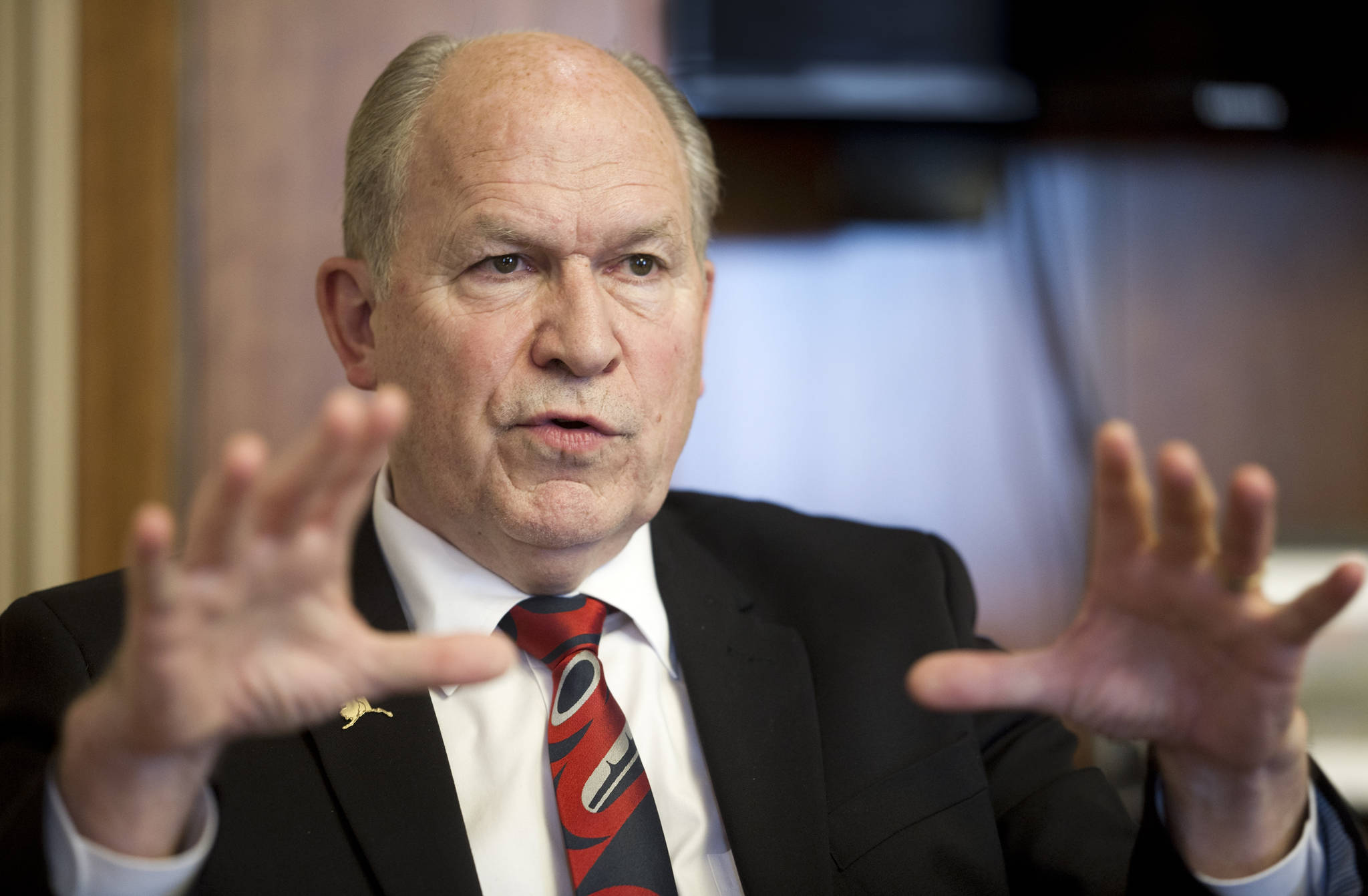Gov. Bill Walker signed Alaska’s capital construction budget without ceremony or vetoes Monday in the Capitol, fulfilling a promise to approve it before Aug. 1.
The $1.4 billion Senate Bill 23 was approved by lawmakers in a one-day special session on Thursday.
That session came after months of legislative deadlock in which lawmakers fought over a contentious operating budget and the reduction of subsidies paid by the state to oil and gas drillers.
SB 23 includes about $1.2 billion in federal money; the remainder comes from the state. Most of the state portion of the budget comes from the Statutory Budget Reserve. Lawmakers learned earlier this year that the reserve unexpectedly contained $288 million; they had thought it was empty.
Gov. Walker’s decision to sign the budget without any vetoes is a disappointment for backers of a road out of Juneau. The Juneau Chamber of Commerce had asked its members to ask Walker to veto a section that calls for money to be redistributed from the Juneau Access Project fund.
That request was a long shot.
Walker in December announced that he would not approve construction of the road, and he proposed redistributing the $47 million the Legislature allocated in previous years for its construction.
The final version of SB 23 signed by Walker does not divert the entire funding, only half. Of the $47 million, $4.4 million will go toward a school project in the Northwest Alaska town of Kivalina, $21.3 million will go toward transportation projects in Lynn Canal, and the remaining money will stay with the project.
Most of the capital budget is earmarked for transportation projects: road repair, bridge maintenance, and similar efforts. The Alaska Department of Transportation will receive $1.2 billion.
That amount, and the amount of the entire budget, is small by historical standards. According to figures provided by the office of the governor, this year’s capital budget is the smallest since 2000, when the state was suffering from a decline in oil prices.
Contact reporter James Brooks at james.k.brooks@juneauempire.com or call 523-2258.

